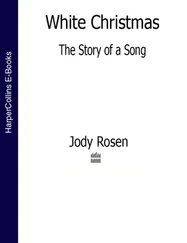Sam smiled as the old man hastened him to his bike and, with a strong push, sent him on his way. At the top of the rise, Sam could see the rain falling across the landscape, like cobwebs from the sky. The wind was rippling the water in the irrigation channels. Workers were moving quickly along the banks of the rice paddies, heading for shelter.
Ahead was the Buddhist temple. Sam let the bike freewheel down the slope. The exhilaration bubbled within him and he began to laugh. Then the rainstorm was all around him, pelting him. Staining the red dust and turning it into mud. Quickly, he dismounted and ran towards the temple. As soon as he reached the threshold, he felt a sudden fear:
‘No, I can’t go in.’
All around him were carved figures, forbidding in their strangeness. He stepped back and turned to leave. Better to face the rain than to continue inside. There, he would have to confront the temple’s holiness. There, he would be unmasked, unclothed in the sight of God. He took one step away from the temple and then another. And at that point, Buddha exhaled and breathed upon the rain. And every raindrop from Heaven held within it a tinkling bell, so that the entire landscape resounded with the harmonics of life.
Sam felt awe overwhelm him, as if the pavilion were calling to him. He knew it was only the austere voices of chanting monks but it sounded like a karanga, reaching out and around him, calling:
Haramai, Sam .
So it was that Sam turned and confronted his fears. He saw before him a pavilion gate, blue, the colour of Heaven. Stretching ahead was a courtyard of tiles, green, the colour of humanity. He sensed the imminence of a kind of peace that was also a mystery. He took a step over the threshold — the paepae — and the pavilion opened like a meeting house and welcomed him in.
Before him was a large inner courtyard, open to the elements. Around the pavilion was a portico coloured with a pale green wash. Ornately carved wooden pillars marked the perimeter, and at the foot of each pillar were pots of flowers. Two dragons, yellow and red, stood on a pair of tigers. The dragons faced each other with snarls and curling tails. Sam remembered that the Vietnamese believed they were descended from a dragon king who mated with the queen of the fairies to produce a hundred sons, one of whom became the first leader of Vietnam. Dragons were lucky and protective.
But what drew Sam’s attention was a pagoda at the far end. Within was a huge altar dominated by a golden Buddha.
Come to me, Sam .
Sam walked across the courtyard. He was drawn along a centre line of white marble, the path of Immortals. As he entered the depths of the temple he noticed little details. Elaborate ceramic friezes; wood, metal and ceramic sculptures; numerous drums, gongs, urns and other Buddhist relics. Diagonally across from him he saw saffron-robed monks in processional along one side of the pavilion. They were walking, shaven heads bowed, through a gateway to some outer temple garden. One of the monks looked up, saw Sam, and paused.
Sam approached the pagoda. The roof was sustained on thick hardwood columns carved with ancient inscriptions. The gilded Buddha was sitting within on an inverted gold lotus throne. Buddha’s hands, with their stylised fingers, were resting on his knees. His eyes were open, and his face had an expression of total peace, of extraordinary serenity. Its majesty and permanence transcended all.
Scattered on the altar were offerings of food and flowers. Incense spirals, each more than two metres long, hung from the gilded ceiling. Below them were large brass urns filled with sand and bristling with incense sticks. Sam stood there for a moment, looking up into the face of the Buddha. He saw that a monk had come to his side. He lit a candle and took a package of lit incense sticks and held them over his head. The monk closed his eyes and said a long mantra. Then he knelt, continuing to intone the mantra. The incense wafted around him as he held the incense sticks above his head.
Sam knelt to pray.
I need your help.
He closed his eyes, and a feeling of vertigo overwhelmed him, sweeping him off his feet and, before he knew it, he was tumbling through Te Po, the Night. Down, down, down he plummeted. Was this his punishment? He felt Harper’s kiss, and his heart was pounding with fear. He saw Harper’s face above him, heard himself whimpering, caught between desire and self loathing. He saw that they were both tumbling through the darkness, sending ripples that disturbed the entire universe.
Time stretched and expanded, and Sam knew that they had fallen through thousands of years. Sam cried out to Harper:
Go back, damn you, let go .
But Harper looked at Sam and shook his head. They kept falling, like two astronauts whose lifelines had snapped, their oxygen leaking away from the trailing cord.
Oh, God, then breathe, Harper, breathe in deep .
A black hole was opening below them and stars were cascading into it: the entrance to Te Kore, The Void. Once through its gateway there would be no return. And Harper thought Sam had accepted him but with one quick surge of strength Sam kicked at Harper and sent him spinning away.
No , Harper cried.
Alone, Sam fell through the black hole. Punishment was for him alone to take. Sacrifice was for him alone to make. The sin was his and his alone. His lungs began to burn and he fought against opening his mouth, because he knew that there was no air to breathe and that he would surely die. He felt his heart beating in his brain, and, all of a sudden, four words formed on his lips.
Please, not eternal darkness.
With a start, Sam opened his eyes. His heart was thundering, almost breaking out of his chest. He grasped the altar, steadying his terror. How long he knelt there, he never knew. Perhaps it was another thousand years. He looked up again at the face of the Buddha and made an obeisance to the figure. All the world seemed to recede around him and away from him. More years passed by, the rain tinkling down like a gentle benediction. Mist surrounded the head of the Buddha, refracting the light. A patch of light, a golden glow, opened above him and Buddha’s aura came streaming down. It was like an absolution.
Suddenly Sam saw that something was moving in the stillness. From the corner of his eye he saw it. Something dislodged by the torrent of rain coursing down the pitched roof, sliding down the pillars of the temple, coiling wet and glistening, slipping downward through the rich red and gold figurines. A cobra, dusky and dark in colour, almost two metres long, with a diamond-shaped head. Ferocious. Deadly. One bite and you were gone in a few minutes, foaming at the mouth and screaming in hideous death.
Mesmerised, Sam watched as the cobra slithered to the floor. There it paused, saw the patch of sunlight glowing where Sam was sitting. It began to slide towards the sunlight, scraping the cobbles like dry leaves falling. At the last moment it sniffed Sam and reared, its hood flaring, ready to strike, its black tongue a piece of lethal licorice, feathering in and out. It stood over Sam, crowding him, and when it hissed, its hood flared again.
Without realising what he was doing, Sam also began to feather his tongue in and out in the action that Maori call the pukana. The cobra reared even higher, and so did Sam. For a moment both Sam and cobra eyed each other.
Then Sam stopped. Relaxed. The cobra imitated his movements. Lowered its head from the strike position. Feathered water from a small puddle among the cobbles and without a look at Sam, coiled itself in the sun, resting itself like he was, waiting for the rain to stop.
‘You and me, snake,’ Sam thought. ‘You are hated and reviled, and men would wish only to stamp on your head and crush you beneath them. If they knew about me they would do the same. Our paths have crossed. Let us enjoy our brief friendship in the sun.’
Читать дальше












